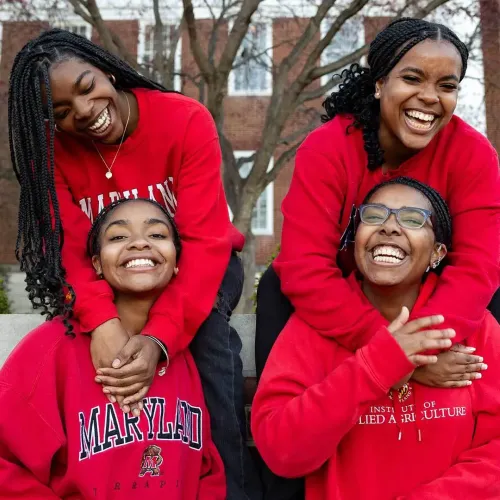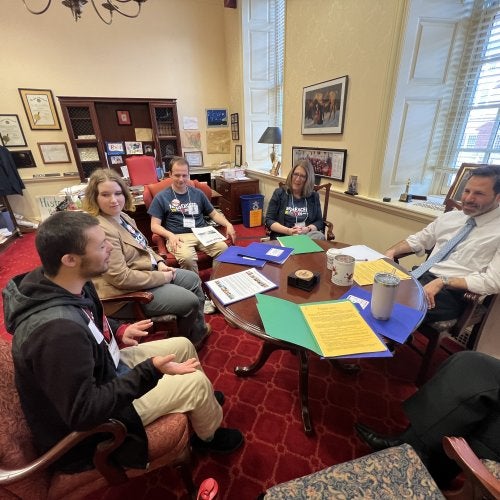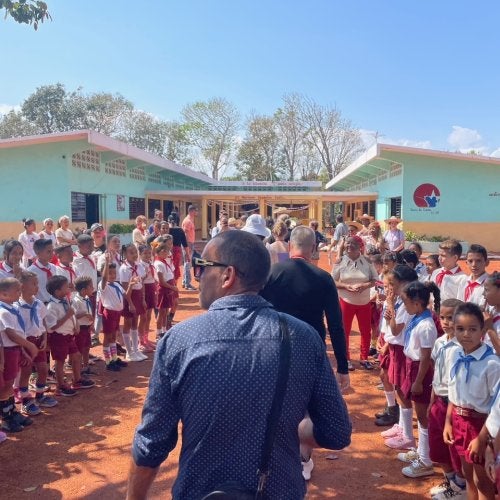

COE Faculty Serve as Editors for the Journal of Technology and Teacher Education Special Issue

University of Maryland College of Education faculty members Daniel Chazan, Elizabeth Fleming and Dana Grosser-Clarkson edited a special January 2018 issue of the Journal of Technology and Teacher Education, which focused on technological supports for practice-based teacher education.
The issue explored the relationship between technology and practice-based teacher education in seven articles, including two that feature the research of COE faculty and graduate students.
Dr. Chazan, a professor in the Department of Teaching and Learning, Policy and Leadership, focuses his research on student-centered mathematics teaching and technology-supported, practice-based teacher education. He is the director of the Center for Mathematics Education and co-director of Terrapin Teachers. Postdoctoral fellows Dr. Fleming and Dr. Grosser-Clarkson—who also served as editors for this special issue alongside Dr. Chazan—work on Dr. Chazan’s NSF-funded grant in the Center for Mathematics Education and focus on developing rich media-based materials for practice-based teacher education.
The Journal of Technology and Teacher Education publishes information about the use of technology in teacher education. Journal articles may cover preservice and in-service teacher education, graduate programs in areas such as curriculum and instruction, educational administration, staff development instructional technology, and educational computing.
The January 2018 issue featured the work of COE faculty Daniel Levin and Janet Walkoe, as well as graduate student Diana Bowen.
Drs. Walkoe and Levin’s article, “Using Technology in Representing Practice to Support Teachers’ Quality Questioning: The Roles of Noticing in Improving Practice,” explained how, “practice-based teacher education (PBTE) moves beyond standard approaches to teacher education.”
According to the article, “A growing body of research suggests that teachers’ responses, including the questions they ask, can help students’ develop content knowledge and proficiency in mathematics and science practices in the classroom.”
Drs. Walkoe and Levin hypothesized that preparing teachers to notice novel questioning will allow them to focus on students’ thinking rather than guiding students’ thinking in their proposed questions. Assistant professors in the Department of Teaching and Learning, Policy and Leadership, Dr. Walkoe’s research focuses on teaching and learning of mathematics, while Dr. Levin’s research interests are in science teacher education.
In, “Learning to Notice and Name Students’ Mathematical Strengths: A Digital Experience,” Bowen, who co-authored the article, discussed the process of designing a digital experience that allowed teachers to notice students’ mathematical strengths rather than notice gaps and deficits in their thinking. Bowen is a doctoral student in the Department of Teaching and Learning, Policy and Leadership in the Center for Mathematics Education whose research interests are related to diversity and equity in secondary mathematics education.
Other articles in the issue include, “Supporting Prospective Secondary Mathematics Teachers in Creating Instructional Explanations through Video Based Experience,” and “Preservice Teachers’ Questioning: Comparing Platforms for Practice-Based Teacher Education.”



